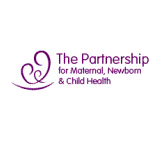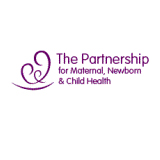Midwives Are Essential to Global Health
By Jerker Liljestrand, Senior Program Officer of Maternal, Newborn and Child Health at the Bill and Melinda Gates Foundation. Midwives have supported women during childbirth since ancient Egyptian times, and today, in many parts of the world, they are providing a unique set of lifesaving services for mothers and babies. Midwives are trained with a … Continued
Thrive Networks and Embrace Merge Newborn Health Solutions: Programs Join Forces to Multiply Lifesaving Impact
Thrive Networks and newborn care innovator Embrace are joining forces to increase the reach and impact of their solutions to a persistent global health challenge: the unacceptably high newborn mortality rate in countries around the globe.
Uganda’s capital blazes a trail in cutting child deaths, charity says – TRFN
Kisenyi health centre in Kampala, which delivers 600 babies a month, symbolises the shift in Uganda which has seen the country invest more money in the healthcare system to make it accessible for the poorest, Save the Children said.
‘Tale of Two Cities’ Widens Worldwide for Children, Study Shows
In two-thirds of the 36 developing countries among the 179 nations surveyed, the poorest urban children are at least twice as likely to die as their wealthier counterparts, according to the report.
Saving newborn babies, one embrace at a time
The First Embrace, a regional launch in 37 countries, says Dr. Silvestre, is taking off from the Philippine experience of changing the way we care for our babies, especially immediately after birth, as well as changing our practices for mothers.
Exclusive Breastfeeding Can Reduce Nigeria’s Burden Of Infant Mortality
“It is not that women don’t understand the value of breastfeeding. Surveys repeatedly show that new mothers across many countries know that breast is best for babies.”
Powerful synergies across different sectors improve health of poor women and children
“These studies revealed that improving people’s health and strengthening health systems required investing in health-enhancing sectors such as education, water and sanitation, social protection, and infrastructure development.”
Nepal, Bangladesh beat India in mother and child care
Ten countries, including Nepal and Bangladesh in South Asia, have dramatically reduced mother and child deaths within two decades despite social and political challenges.
Every Newborn in Focus at Ministerial Breakfast
An informal breakfast meeting organized by PMNCH, brought together a dozen ministers of health and representatives from the Gates Foundation led by Melinda Gates, to discuss maternal and newborn health with a specific focus on the Every Newborn Action Plan.
Invisible children: birth registration is a prerequisite for equality
More than a third of children are not registered at birth, making it difficult for them to contribute to economic, social and political life. Could a new governance indicator bring change?









